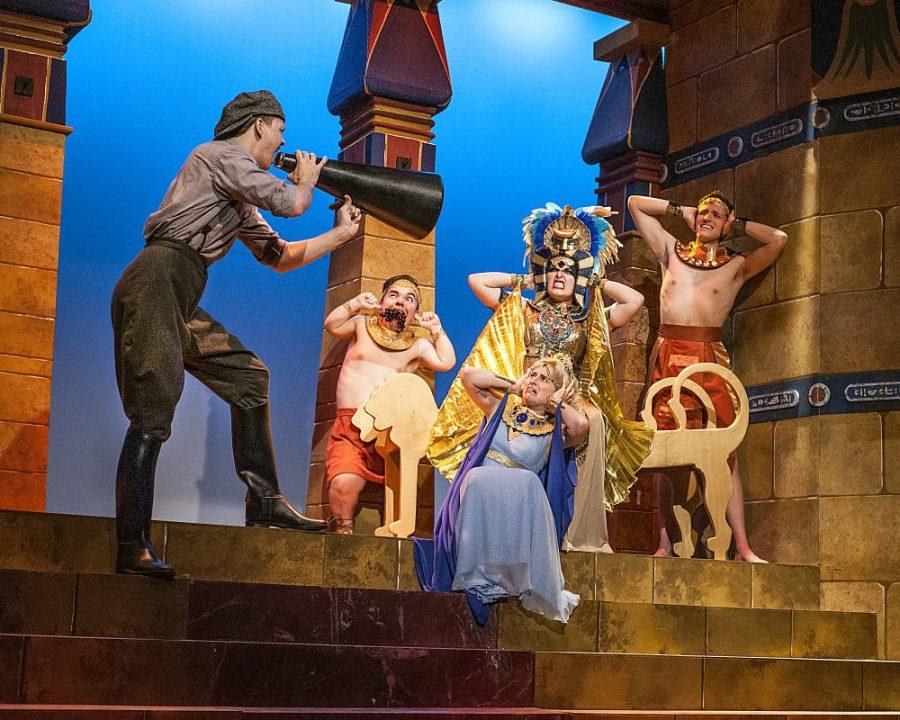UA students will be able to look forward to decreased ticket prices this semester at the Arizona Repertory Theatre. Ticket prices have been cut across the board to $15 for both plays and musicals.
The new price point aims to attract more students who might have previously been barred from attending the theater due to the price of admission.
For UA students who want to save a little more there is a rush option where students can pay $10 with the trade off of not being able to choose their own seat.
Prior to the price cut, students paid $19 for plays and $21 for musicals, prices Lisa Pierce, director of marketing and development for the School of Theatre, Film and Television, admitted were a bit high for students.
Pierce said the main cause for the change in price was to make the theater more accessible and affordable for the students.
“The production value competes with anything you might see in the professional arena,” Pierce said. “To offer them at this price is a real treat.”

Pierce concedes that the vast majority of theatergoers up to this point have been an older audience because mostly retirees and people in their 60s or older go to shows. However, she said that the second-highest demographic to attend plays and musicals put on by the theater has been UA students.
RELATED: BFA musical theatre major talks life as a student actor
According to Pierce, attendance at the theater has been average but hopes the new $15 entry fee will remedy that.
“The price was a little bit of a deterrent,” said Emma Eddy, a physiology sophomore.
A host of other issues, such as lack of information, also played into her decision to not attend the theater in previous semesters. While Eddy herself speaks about her will and desire to attend the theatre, she said she finds it difficult to obtain event times of performances.
“I still don’t know where or when,” Eddy said. “I can only hope we get the word out enough, that’s another challenge of ours.”
Pierce laments the lack of exposure the theater receives. She attributes these issues to insufficient funding which is able to be allocated to advertising and marketing.
“There’s no one place on campus where we can e-blast everybody,” Pierce said.
The theatre has other threats as well, particularly other forms of entertainment media. Pierce cites movies, phones, cable and other everyday luxuries as competition the theatre must compete against to get students to attend.
“The Arizona Repertory Theatre is a nonprofit state agency that relies solely on box office ticket sales,” Pierce said. “That’s why dropping the price is such a big deal.”
The money productions make goes right back into the program for future use in events and shows. As a result, the revenue that productions generate is vital for the continuity of many of the student performed plays and musicals.
RELATED: BFA student Alec Michael Coles prepares for role in Shakespeare’s ‘Twelfth Night’
“Theater is in their blood, it’s what they eat sleep and breathe and they’re exceptional,” Pierce said, testifying to the quality of productions on display.
Vanessa Campo-DeLos, Santos House manager at the Arizona Repertory Theatre, said word of mouth is one of the most effective forms of advertisement the theatre has at its disposal.

“We need more students to attend these awesome, student-run performances,” she said.
The first production UA students will be able to take advantage of the new $15 ticket prices will be “Proof,” a play by David Auburn. Opening night is set for Feb. 8 with preview shows available for those interested on Feb. 5 and 6.
“Proof” promises to be a story of mystery and intrigue following the daughter of a deceased mathematician in her quest to discover the true identity of the author of a “ground-breaking mathematical proof.”
UA students will also be able to look forward to “Twelfth Night,” a comedy originally written by William Shakespeare about a young girl who finds herself in the middle of a love triangle, and “Evita,” a musical telling the story of Eva Perón, the former first-lady of Argentina.
For Pierce, plays and musicals are more than just simple performances.
“They are a universal, cultural phenomenon, one of the oldest forms of storytelling,” she said.
At the end of the day, the new price serves as a way to gain student interest and get them to try the theatre. Pierce is confident that when students do come to a show they’ll want to come back.









